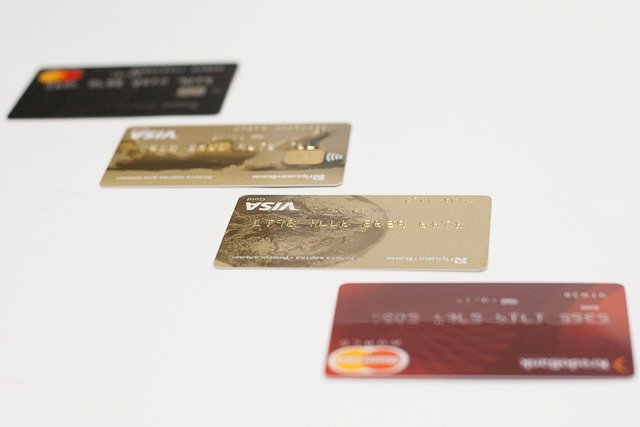Credit Cards: Empowering Modern Transactions for Businesses and Consumers
Credit cards have become an integral part of our daily financial transactions, offering convenience and flexibility for both consumers and businesses alike. These small plastic rectangles have revolutionized the way we make purchases, manage finances, and conduct business operations. Understanding the intricacies of credit cards is essential for anyone looking to navigate the modern financial landscape effectively.

Credit card transactions involve several parties:
-
The cardholder (consumer)
-
The merchant (business)
-
The card issuer (bank or financial institution)
-
The payment processor
When a transaction occurs, the payment processor verifies the card’s validity and available credit, then transfers funds from the issuer to the merchant. This process happens within seconds, making credit card payments both fast and convenient.
What are the benefits of credit cards for consumers?
Credit cards offer numerous advantages to consumers, making them a popular choice for everyday purchases and financial management:
-
Convenience: Credit cards eliminate the need to carry large amounts of cash, allowing for easy and secure payments.
-
Rewards programs: Many credit cards offer cashback, points, or miles on purchases, providing additional value to cardholders.
-
Build credit history: Responsible use of credit cards can help establish and improve credit scores, which is crucial for future loans or financial opportunities.
-
Purchase protection: Many credit cards offer extended warranties, fraud protection, and dispute resolution services for purchases.
-
Emergency funds: Credit cards can serve as a financial safety net in unexpected situations or emergencies.
How do credit cards benefit businesses?
For merchants and businesses, accepting credit card payments can significantly impact their bottom line and customer satisfaction:
-
Increased sales: Customers tend to spend more when using credit cards compared to cash, potentially boosting revenue.
-
Improved cash flow: Credit card payments are typically processed and deposited quickly, ensuring consistent cash flow for businesses.
-
Enhanced customer experience: Offering multiple payment options, including credit cards, can improve customer satisfaction and loyalty.
-
Reduced risk: Credit card payments minimize the risks associated with handling large amounts of cash.
-
Expanded customer base: Accepting credit cards allows businesses to cater to a broader range of customers, including those who prefer cashless transactions.
What are the key factors in credit card security?
As credit card usage continues to grow, security remains a top priority for issuers, merchants, and consumers alike. Several measures are in place to protect against fraud and unauthorized transactions:
-
EMV chip technology: These embedded microchips generate unique codes for each transaction, making it difficult for fraudsters to clone cards.
-
Two-factor authentication: Many issuers require additional verification steps for online or high-value purchases.
-
Fraud monitoring systems: Card issuers use advanced algorithms to detect suspicious activity and prevent unauthorized transactions.
-
Secure payment gateways: Merchants must use PCI-compliant payment systems to protect cardholder data during transactions.
-
Zero liability policies: Many credit card companies offer protection against unauthorized charges, giving consumers peace of mind.
How are credit card fees structured?
Understanding credit card fees is crucial for both consumers and businesses. While fee structures can vary, here are some common types of fees associated with credit cards:
For consumers:
-
Annual fees
-
Interest charges on unpaid balances
-
Late payment fees
-
Balance transfer fees
-
Cash advance fees
For merchants:
-
Transaction fees (typically a percentage of the sale amount)
-
Monthly or annual fees for payment processing services
-
Chargeback fees
| Fee Type | Consumer | Merchant |
|---|---|---|
| Annual Fee | $0 - $550+ | Varies by provider |
| Transaction Fee | N/A | 1.5% - 3.5% per transaction |
| Interest Rate | 13% - 25% APR | N/A |
| Late Payment Fee | $25 - $40 | N/A |
| Chargeback Fee | N/A | $15 - $100 per instance |
Prices, rates, or cost estimates mentioned in this article are based on the latest available information but may change over time. Independent research is advised before making financial decisions.
How can businesses optimize their credit card acceptance?
For businesses looking to maximize the benefits of accepting credit card payments while minimizing costs, consider the following strategies:
-
Shop around for payment processors to find competitive rates and fees.
-
Implement robust security measures to reduce the risk of fraud and chargebacks.
-
Train staff on proper credit card handling procedures to minimize errors and disputes.
-
Consider offering incentives for customers to use credit cards for larger purchases.
-
Regularly review and negotiate your merchant agreement terms to ensure you’re getting the best possible rates.
Credit cards have fundamentally changed the way we conduct financial transactions, offering convenience, security, and financial flexibility for both consumers and businesses. By understanding the mechanics, benefits, and considerations of credit card usage, individuals and merchants can make informed decisions to optimize their financial operations and take full advantage of this powerful payment tool.






